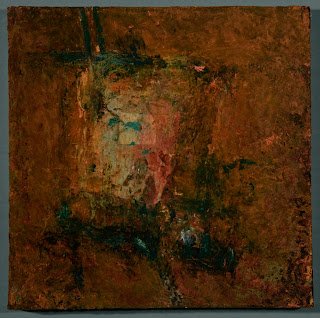The key to finding happiness
The ability to forgive oneself is the key to making art, and is possibly the key to finding any semblance of happiness in life
Ann Patchett
The first time I read these words, tears welled up in my eyes. How brave and brilliant of Ann Patchett to name the connection between forgiveness and art making.
Art is about daring. Consequently, it is a road strewn with the rubble of mistakes. Whether big or small, our errors empower our insights. Thomas Edison, at the time when he was working on the invention of the electric light bulb, was challenged by someone criticizing him, saying he should admit that he’d failed to accomplish what he set out to do. Edison famously answered, “ I have not failed. I've just found 10,000 ways that won't work.”
Ten thousand attempts! Not only did he forgive himself for guessing wrong and using up precious time, rent money, the salary of his assistant, and the cost of materials, he understood that each failure was an increase in his knowledge. That single insight was ultimately what led to his success. Not only did he forgive himself for not succeeding each time, he made each failure an integral part of success.
In Your Love I Find My Home, 12" x 12", (2014)
In art, there is more destruction than construction. Most people don’t understand that. Whether you are learning to draw the human figure, or sculpt a piece of wood without cracking it, you are going to make some really ugly things. In learning to draw the human figure, for example, we cannot even count the number of errors made on the way to learning how to do it successfully. Your subject is a structure of bones and organs covered with muscles, tendons, ligaments, fat and flesh. And it’s your aim to make a drawing that looks like a person whose presence neatly defies the blood driven complexity of its being. In order to do that, you have to make at least a thousand bad drawings. You have to get it wrong over and over again, in order to get it right. The same is true in writing, music, dance, musicianship, and all creative endeavors, including technical and industrial design (as per the genius of Edison).
Knowing the requirements of art or life does not, however, remove the emotions, the psychological nagging, or the haunting voices of teachers or relatives who derided you for your vision and desire to be “an artist” or “a person”. That’s when Anne Patchett’s words are so important. Forgive yourself for every crumpled piece of paper, for every deleted sentence, for every off note. And don’t forget that the word life is interchangeable with the word art in the quotation. Remember Edison, and realize that every failure is part of success. You may lose a job, or a lover. When you are committed to a vision, there will be times when you feel alienated from others, and sometimes even alienated from the easy life you think others are living. You may have days when you question the ambitions that drive you, but those are the days when you must remember the words of Anne Patchett. Forgive yourself. Take yourself out for a treat or give yourself a day off.
In my experience, even if I try to push myself away from the frustration of the creative process, before I realize it, my mind is on it again. A new insight about the story I’m writing comes to me just before I go to sleep, or I see in my mind’s eye a shift in the painting waiting on the easel. Then, I’m back at it, forgiving the process, and forgetting the last disappointment. You are not alone. Life is a creative process, so even people who do not name their art form are going through the cycles of trial, error, frustration and forgiveness. You are surrounded by fellow travelers.
